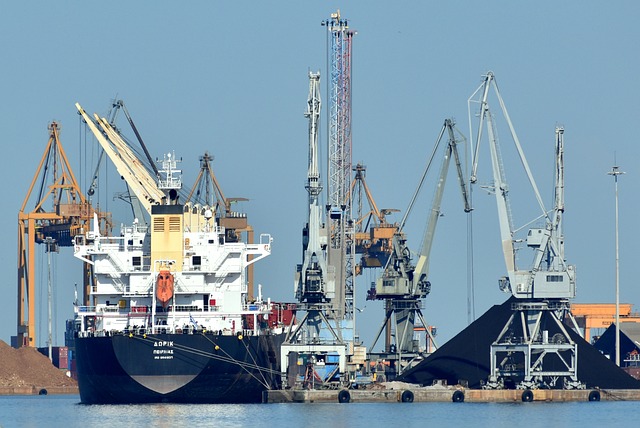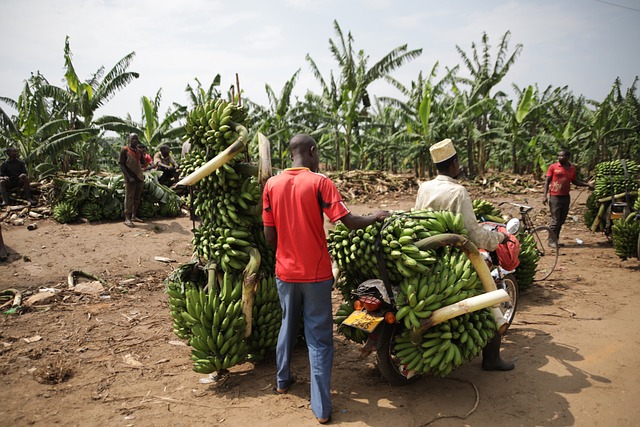Understanding and adhering to UK customs regulations is vital for businesses engaging in international trade, emphasizing the importance of Customs and Trade Documents UK translation services. Accurate documentation, including invoices, shipping manifests, and certificates of origin, is crucial for smooth customs clearance, duty calculations, and compliance with legal standards. Professional translation services ensure linguistic accuracy, commercial terminology proficiency, and regulatory alignment, minimizing delays, penalties, and legal issues. Digital transformation in customs documentation further underscores the need for these services, facilitating a more efficient, secure, and interconnected UK customs ecosystem.
In today’s globalised market, ensuring legal compliance with UK customs documents is paramount for international traders. This comprehensive guide navigates the complex landscape of UK customs regulations, highlighting the crucial role accurate documentation plays in smooth trade flows. We explore key document types, best practices for preparation, and the significance of professional translation services to mitigate challenges. From understanding regulatory requirements to leveraging future trends like digitalisation, this article equips businesses with essential knowledge for navigating UK customs successfully.
- Understanding UK Customs Regulations: An Overview
- The Role of Accurate Documentation in International Trade
- Key Types of Customs and Trade Documents in the UK
- Legal Requirements for Document Translation Services
- Ensuring Compliance: Best Practices for Document Preparation
- Common Challenges in Customs Documentation and How to Overcome Them
- The Importance of Professional UK Translation Services
- Case Studies: Successful Navigations of UK Customs with Proper Documentation
- Future Trends: Digitalization and Its Impact on Customs Documents
Understanding UK Customs Regulations: An Overview

Understanding UK customs regulations is a crucial step for any business involved in international trade. The UK has specific rules and requirements for importing and exporting goods, which are designed to protect its borders and ensure fair competition. Compliance with these regulations not only avoids legal penalties but also facilitates smoother operations.
Customs and trade documents play a vital role in this process, acting as proof of compliance and enabling efficient customs clearance. UK translation services are often required for non-English language documents, ensuring accuracy and consistency across all paperwork. This includes certificates of origin, commercial invoices, packing lists, and any other relevant documentation that must be precise and up-to-date to meet the stringent standards set by UK customs authorities.
The Role of Accurate Documentation in International Trade

In international trade, accurate documentation plays a pivotal role in ensuring smooth customs clearance and compliance with UK regulations. Customs and trade documents serve as the bridge between exporters and importers, facilitating efficient transit through borders. These documents not only verify the authenticity of goods but also help calculate duties and taxes, which is crucial for financial transparency.
UK translation services become essential when dealing with non-English documentation, as they ensure that all customs forms are accurately translated, reducing errors and potential delays. This is particularly vital for businesses operating in a global market where transactions involve diverse languages. Accurate translations help maintain the integrity of the supply chain, making it seamless and compliant with UK customs requirements.
Key Types of Customs and Trade Documents in the UK

In the dynamic landscape of international trade, understanding and adhering to customs regulations is paramount for businesses operating within the UK. The country’s robust customs framework demands accurate documentation to facilitate smooth movement of goods. Key types of customs and trade documents include Commercial Invoices, Packing Lists, and Bills of Lading – each serving a unique purpose in the supply chain. These documents not only ensure legal compliance but also play a crucial role in customs declaration and valuation.
Customs and Trade Documents UK translation services are essential to navigating this complexity, especially for businesses dealing with non-English speaking countries. Accurate translations ensure that all documentation meets legal standards and avoids costly delays at ports. With the ever-evolving nature of trade regulations, staying informed about document requirements and leveraging professional translation support is vital for efficient and compliant international trading.
Legal Requirements for Document Translation Services

In the UK, customs and trade documents require precise and accurate translations to ensure legal compliance. When dealing with international trade, businesses must provide translated versions of critical documentation such as invoices, shipping manifests, and certificates of origin. These translations are not merely for communication; they carry legal weight and are often needed for customs clearance and regulatory purposes.
The legal requirements for translation services in the UK are stringent, especially when it comes to customs and trade documents. Accurate translations must be provided by qualified translators who possess expertise in both the source and target languages, as well as a deep understanding of commercial terminology. Services that offer UK customs document translation should adhere to industry standards and regulations, ensuring that the translated content is not only linguistically correct but also legally sound.
Ensuring Compliance: Best Practices for Document Preparation

Ensuring compliance with UK customs documents is paramount for any business engaged in international trade. Accurate and complete documentation is critical to avoid delays, penalties, or even legal repercussions at the border. Best practices for document preparation involve meticulous attention to detail, accuracy in descriptions and quantities, and adherence to specific formatting requirements. Engaging professional translation services for customs and trade documents is a strategic move, especially when dealing with multiple languages. These services ensure not only grammatical correctness but also that all terminology aligns with UK regulations, minimizing the risk of errors that could jeopardize smooth clearance.
Consistency in document creation is key. Using standardized templates and maintaining a clear, logical structure enhances efficiency during the preparation process. It’s important to double-check for any missing or incorrect information before submission. Additionally, staying updated on changing customs regulations is vital; regular reviews ensure your documentation stays compliant, facilitating faster and more efficient movement of goods across UK borders.
Common Challenges in Customs Documentation and How to Overcome Them

The process of customs documentation can be complex, presenting several challenges for businesses navigating the UK’s regulatory landscape. One of the primary hurdles is ensuring accuracy and consistency in a wide array of required documents, including commercial invoices, packing lists, and certificates of origin. These documents must adhere to specific formatting and language requirements, with accurate translations for non-English languages being particularly vital for international trade. Delve into any language-related issues, and you’ll find a growing need for UK customs and trade document translation services to prevent delays at ports and border control.
To overcome these challenges, businesses should implement robust internal procedures. This includes investing in training for staff involved in exporting or importing goods to understand the intricacies of customs documentation. Additionally, employing specialized software designed for managing customs paperwork can streamline processes, reduce errors, and enhance compliance. By adopting these measures, companies can efficiently navigate the complexities, ensuring their documents meet UK legal standards without unnecessary delays or penalties.
The Importance of Professional UK Translation Services

In today’s globalised trade landscape, ensuring legal compliance with UK customs documents is non-negotiable. One critical aspect often overlooked is the accuracy and professionalism of translations. Customs and trade documents, such as invoices, shipping manifests, and certification papers, must be translated accurately to avoid delays, fines, or even legal disputes. Using reputable UK translation services that specialise in customs and trade documentation is essential for several reasons.
These professionals have a deep understanding of the legal and regulatory frameworks surrounding imports and exports, ensuring that translations not only convey the intended meaning but also comply with UK laws. They employ qualified linguists who are experts in their fields, guaranteeing terminology consistency and cultural sensitivity across all documents. This attention to detail minimizes risks and facilitates smoother customs clearance processes, ultimately contributing to a successful and compliant international trade experience.
Case Studies: Successful Navigations of UK Customs with Proper Documentation

Many businesses have successfully navigated the complexities of UK customs by ensuring their documentation is accurate and compliant. Case studies show that proper preparation and understanding of Customs and Trade Documents are key to a smooth process. For instance, a recent study highlighted a small e-commerce business that expanded internationally with ease due to their investment in professional UK translation services for customs documents. This enabled them to accurately declare goods, ensuring they met all legal requirements.
Another example involves a large manufacturing company who, after facing significant delays at the border, implemented a comprehensive training program for their staff on the latest customs regulations and documentation procedures. As a result, their turnaround time improved significantly, demonstrating that investing in education and resources can greatly benefit businesses dealing with UK customs. These real-world applications underscore the importance of staying informed and utilizing available tools, such as translation services, to ensure compliance with Customs and Trade Documents requirements in the UK.
Future Trends: Digitalization and Its Impact on Customs Documents

The future of customs documentation in the UK is being shaped by digitalization, which offers both opportunities and challenges for businesses. As technology advances, digital transformation is becoming increasingly essential across various sectors, including customs and trade. One of the most significant trends is the transition from paper-based documents to electronic formats. This shift not only streamlines processes but also enhances efficiency, accuracy, and security in cross-border transactions. With UK customs and Trade Documents translation services playing a vital role in facilitating international trade, digitalization allows for faster and more reliable data exchange.
Digitalization enables real-time document sharing, automatic data extraction, and reduced reliance on manual input, thereby minimizing errors and delays. Advanced encryption techniques can secure digital documents, ensuring sensitive information remains protected during transmission and storage. Moreover, blockchain technology has the potential to revolutionize customs procedures by creating an immutable record of transactions, enhancing transparency, and enabling faster clearance processes. These future trends indicate a more interconnected, efficient, and paperless customs ecosystem in the UK.
Navigating the intricate web of UK customs regulations requires a deep understanding of the essential role accurate documentation plays in international trade. By familiarizing yourself with key customs documents, such as Commercial Invoices, Packing Lists, and Declaration Forms, you can ensure smooth customs clearance. Additionally, leveraging professional UK translation services for non-English documents is crucial to meet legal requirements and avoid potential delays or penalties. As the digital landscape evolves, embracing digitalization promises to streamline customs processes further, making it essential for businesses to stay informed about these developments and continue prioritizing meticulous document preparation.



